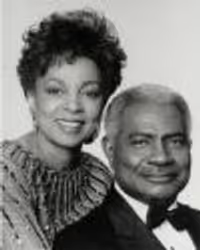Director residuals?
#1Director residuals?
Posted: 5/23/09 at 8:15pm
Quick question, I was curious to know if anyone knew if directors receive residuals when a Broadway show has a lengthy run? I?m really not sure how Broadway payments work on the production side of the table, but I am familiar with the contract process that actors sign.
So I guess my question is, how are directors paid? Is it a similar contract to actors? And if a show has a lengthy run does the director receive a residual? Like is Julie Taymor still being paid for Lion King even though it?s been on Broadway for 12 years, or is Hal Prince still receiving monies from Phantom even though he?s been technically done with the show since 1988?
#2re: Director residuals?
Posted: 5/23/09 at 8:44pm
Directors of long-running shows usually check up on the show from time to time. Sometimes they even help rehearse replacements. Hal Prince checks up on Phantom. Walter Bobbie and Ann Reinking frequently check up and help out with Chicago.
I don't think that answers your question. But usually a director isn't completely done with a show after opening night.
nomdeplume
Broadway Legend Joined: 6/20/05
#2re: Director residuals?
Posted: 5/23/09 at 9:08pm
I read recently that directors are employees (that article on changing the name of their union recently as I recall).
Employed by the producers. Their continuing obligation to keep the directing up to snuff on the play can get them a continuing paycheck as I understand it.
There has been an issue recently of directors trying to cross the line and claim to own something out of the work, but playwrights are dead against that because the show (play) is the intellectual property of the playwright (talking plays here). This is complicated and I don't want to go on and on about it.
Updated On: 5/23/09 at 09:08 PM
#3re: Director residuals?
Posted: 5/23/09 at 9:13pm
Directors receive a royalty, just like the writers. Choreographers do, too. In fact, many people get a royalty check every week even though their day-to-day work on the show is done: designers, orchestrators, authors/owners of the original work, etc. Payment for a director is usually a one-time fee and then a weekly royalty for as long as the show is running, and is calculated as a percentage of the week's gross (a director is probably at around 1-2% of the gross, all subject on negotiation). They probably also receive money from subsidiary rights - meaning when the show gets licensed by MTI or Tams they will still earn royalties on it. Again, all subject to how powerful their agent/lawyer is.
So if a show runs for a long time and makes income (not even profit, just income) a director stands to make a very, very, very large amount of money. Especially once you start to add in multiple companies.
As they say, you can't make a living, but you can make a killing.
nomdeplume
Broadway Legend Joined: 6/20/05
#4re: Director residuals?
Posted: 5/23/09 at 9:22pm
But this is contractual and some of it is negotiable.
And what directors receive is not just the same as the writers because the writers are licensing their property, versus directors getting paid for a job.
You can also have a work-for-hire writer, but that is another situation.
Updated On: 5/23/09 at 09:22 PM
#5re: Director residuals?
Posted: 5/24/09 at 9:54amOk, thanks guys. This helped. I appreciate it.
RyToast1
Broadway Legend Joined: 5/27/07
#6re: Director residuals?
Posted: 5/24/09 at 10:02amSO, Wicked is probably making a lot of people, very, very wealthy?
#7re: Director residuals?
Posted: 5/24/09 at 12:37pmYes, WICKED is making a lot of people very, very, VERY wealthy!
#8re: Director residuals?
Posted: 5/24/09 at 8:29pm
The MINIMUM fees and royalties for Broadway Directors and Choreographers can be found at SSD&C, now known as SDC. At the website they have the contracts and rates for Broadway, Off-Broadway, LORT, etc. All in PDF format.
STAGE DIRECTORS & CHOREOGRAPHERS SOCIETY
#9re: Director residuals?
Posted: 5/24/09 at 9:19pm
"They probably also receive money from subsidiary rights - meaning when the show gets licensed by MTI or Tams they will still earn royalties on it. Again, all subject to how powerful their agent/lawyer is."
How can a director of a BROADWAY production get paid for something they have NO input in. A regional/community theatre production is not allowed to use the staging of the Original Broadway Cast because it is all copywrite to the producers (ie. see the Lawsuit between Carousel Dinner Theatre and the producers of Urinetown.)
The same thing goes with choreography.
#10re: Director residuals?
Posted: 5/24/09 at 9:27pm
Some directors and choreographers are credited as the original creators and you HAVE to use their direction (Bennett, Robbins).
Other than that, many Broadway producers get subsidiary rights for regional and amateur productions they have nothing to do with. The idea is that those regional productions would not be happening without the exposure from the producer's original production. For that, the producer gets a piece of the author's royalties for some length of time (I think ten years is standard). I'd imagine it's the same thought process for directors and choreographers.
Everything in life is only for now. ~ Avenue Q
There is no future, there is no past. I live this moment as my last. ~ Rent
Videos







